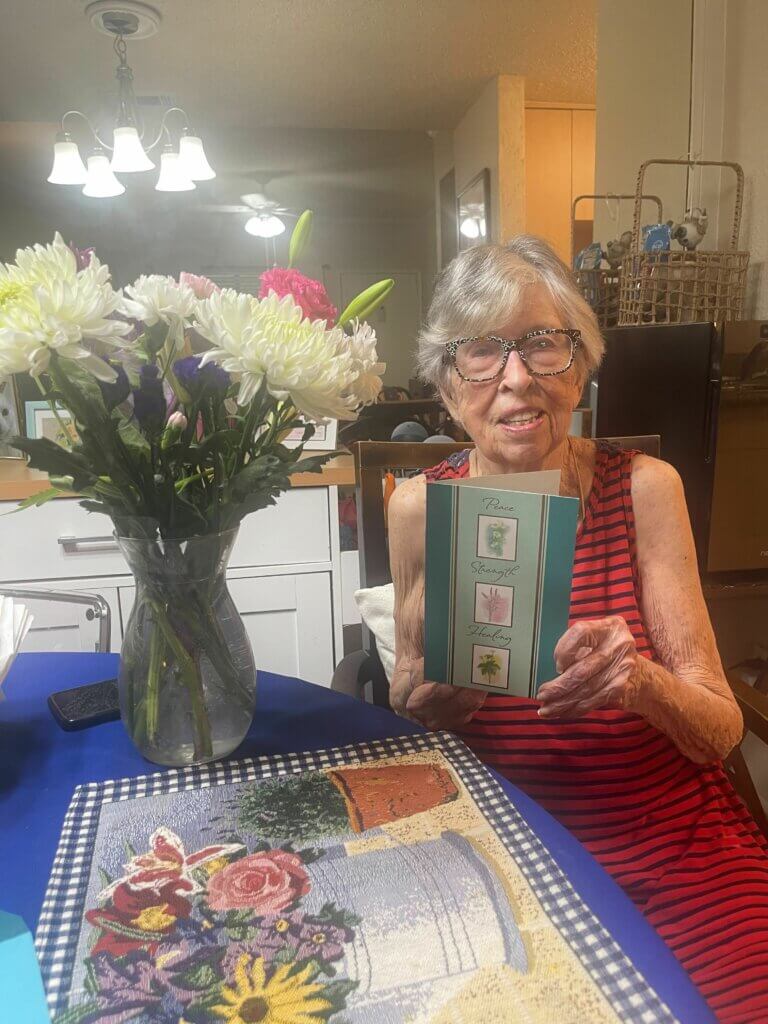A power of attorney can be an invaluable legal tool for both planning ahead and handling affairs if one becomes mentally incapacitated later in life. Appointing a trusted person to make financial, healthcare, or other key decisions offers comfort. However, precisely because a power of attorney enables someone else to take action on your behalf, having accurate information is essential when establishing one. Unfortunately, several misconceptions exist that might lead families astray. Getting the facts straight on issues like an incompetent person’s ability to designate an agent, use of online forms, whether agents have free rein, and types of powers of attorney avoids future complications. By clarifying these common areas of confusion with an attorney’s guidance, you can implement a power of attorney tailored for your unique needs and circumstances with full confidence.
Mentally incompetent people can appoint a power of attorney – Misconception #1
Among the most common and impactful misunderstandings Home Matters encounters about powers of attorney relates to whether someone mentally incompetent can designate an agent. Many wrongly believe that getting a doctor’s declaration of incapacity is the first step for families to gain legal permission to handle an aging parent’s affairs. In reality, the opposite holds true.
A mentally competent adult is the only individual legally able to sign over decision-making authority to another via a power of attorney document. Mental incapacity, whether from dementia, stroke, or traumatic brain injury, precludes an individual from fully grasping the implications of such an action. Without this awareness, they cannot legitimately sign any binding agreements.
Unfortunately, once competency falters, obtaining authority to step in becomes far more complex and restrictive. The only recourse involves petitioning the court to establish a conservatorship or guardianship. This not only removes autonomy from the elderly person, but initiates a prolonged legal process incurring hefty expenses for assessments, filings, and mandated reporting. Such outcomes contravene most families’ aims.
Home Matters stresses the urgency of putting medical and financial powers of attorney in place while aging adults still demonstrate sound capacity for judgement. Waiting risks violating their wishes and forfeiting control needlessly to the court system. Consult a lawyer while cognitive clarity persists to understand what protections suit your loved one’s preferences and situation. Acting early enough prevents a deeply regrettable and damaging predicament down the road.
You can find a power of attorney document on the internet – Misconception #2
Another common misstep Home Matters sees families make regarding powers of attorney involves using generic templates discovered online instead of customized documents prepared by attorneys. The internet offers an abundance of legal forms covering a broad spectrum of needs. However, few free resources available with a quick web search can adequately replace tailored counsel when drafting such personally vital paperwork.
While pre-made power of attorney forms seem conveniently expedient, they frequently fail to account for unique state regulations that govern validity. Even reputable sites may lack recent updates that influence one’s particular situation. Beyond legal oversights, essential personal details don’t appear if a boilerplate document skips probing questions an attorney would raise. Overlooking healthcare instructions or the naming of an alternate agent risks later conflicts.
For such seminal directives guiding major life decisions, families deserve greater assurance than clicking a generic template provides. The modest upfront investment of having Home Matters connect members with competent lawyers prevents vastly more painful costs down the road should disputes arise over unclear or inadequate powers of attorney. It also spares families the agony of guessing what wishes their aging loved ones neglected to document.
Rather than take chances with vital elder care preparations, consult Home Matters to find affordable planning assistance in your area. Our dedicated advisors take time to understand your needs and priorities first, so we can recommend attorneys well-versed in power of attorney best practices to meet them. Entrust such important safeguards for your peace of mind to specialists invested in building customized solutions.
A power of attorney grants an agent the right to do what they please with your estate – Misconception #3
One common area of confusion Home Matters encounters relates to the latitude agents possess when named as one’s power of attorney. Some wrongly assume appointing an adult child or other relative grants them unconditional license over every financial and healthcare decision without limitation or oversight. In truth, stringent ethical and legal obligations bind agents to act solely in the principal’s best interests at all times.
Despite popular misgivings, agents cannot redirect funds into personal accounts, override care preferences to cut costs, or otherwise exploit their access for self-benefit per se. Powers of attorney must demonstrate respect for any account restrictions or instructions from the principal. Even broadly worded authorities fundamentally intend to align with the principal’s known wishes rather than countermand them.
For community members needing additional assurance, Home Matters partners with qualified elder law attorneys who can build customized reporting requirements, joint decision protocols with other heirs, or scope limitations into tailored power of attorney agreements. Our member support team also trains families on warning signs of financial abuse involving agents requiring prompt intervention.
Rather than allow misunderstandings to breed mistrust, candid conversations clarify appropriate boundaries before designating someone as your legal stand-in. Home Matters facilitates clear communication and expectation setting among seniors, agents named, and other loved ones to ensure all act in shared good faith. Explore member resources to make the most empowered choices.
There is one standard power of attorney – Misconception #4
A final common point of confusion Home Matters helps families clarify relates to the assumption that a single standard power of attorney form works universally for everyone’s needs. In actuality, these legally binding documents come in several distinct categories to align with specific goals and situations. Families deserve to understand the tailored options available, not limit themselves to simplistic thinking.
Beyond special limited uses or clauses added a la carte, three main structures exist – general/regular, durable, and healthcare advance directives. The first allows an agent temporary authority that the principal still actively monitors. Durable powers persist if one becomes incapacitated (either immediately or contingent on that event). Healthcare proxies focus narrowly on just overseeing treatment decisions when a person cannot direct their own care.
Home Matters guides families to first consider what scenarios they want coverage for, both currently and if health fails in coming years. Do you need assistance managing bills before a crisis hits? Or do you only require healthcare advocacy later should you develop dementia? Those priorities dictate which power structure serves best. Our advisors then connect members to elder law attorneys who can properly translate those goals into state-compliant agreements.
Rather than resort to a catch-all document, Home Matters helps families future-proof plans with customized powers of attorney shaped around individualized needs. Schedule a consultation to understand the options available for granting flexible decision-making authority, end-of-life care alignment, and other protections securing peace of mind.
What is a general power of attorney?
A general power of attorney grants an agent broad authority to conduct a wide variety of business and financial transactions on the principal’s behalf. This may include paying bills, managing real estate, operating business interests, making investments, filing taxes, and more. However, the agent’s powers are revoked if the principal dies or becomes incapacitated. Rules governing general POAs depend on each state’s laws.
What is a limited or special power of attorney?
A limited or special power of attorney confers authority to an agent only for very specific, enumerated actions defined in the document. For example, an agent may be designated to carry out a single real estate transaction or stock trade. The scope is narrow and custom-designed for the principal’s needs. The agent cannot exceed the clear boundaries set forth.
What is a durable power of attorney?
A durable power of attorney remains valid even if the principal later becomes mentally incapacitated and can no longer make decisions independently. This allows the agent to keep managing essential financial, legal, and healthcare matters despite the principal’s diminished capacity. Durable POAs provide critical continuity if someone becomes unable to direct his or her own affairs due to dementia or other disorders.
Powers of attorney serve as the core pillar undergirding a robust estate plan. They empower trusted allies to continue managing your financial, legal, medical, and personal affairs should you become physically or mentally unable to direct them yourself. Rather than leave your welfare and end-of-life wishes fatefully ambiguous, use a customized POA to cement choice and control moving forward.
Yet as central as these documents remain for every responsible adult, misinformation still abounds, leading families toward needless hardships. Work with an experienced estate planning or elder law attorney—not just generic online templates—to craft strategic POAs purpose-built around your unique priorities across all potential scenarios. Appoint conscientious agents fully cognizant of their solemn fiduciary duties. Together with candid loved ones, create safeguards ensuring your care aligns with your values during life’s final chapters. Despite its challenges, the peace afforded by thoughtful planning greatly outweighs the alternative turmoil when crisis strikes. Arm yourself and your chosen circle with accurate knowledge driving empowered decisions.
Contact us at 832-371-6600 for a free consultation to share the challenges you’re facing, and to learn how our personalized home care services can help you.
Home Matters Caregiving proudly serves the Houston Metro area providing care for seniors wherever they call home.











